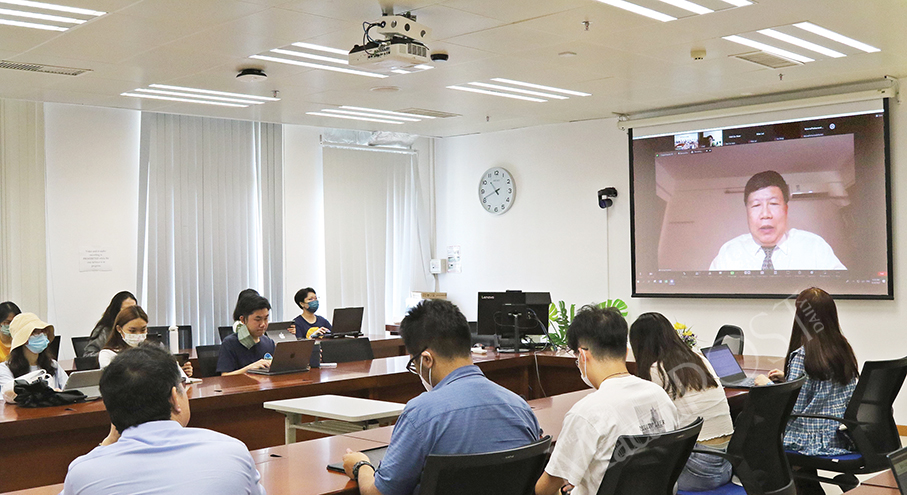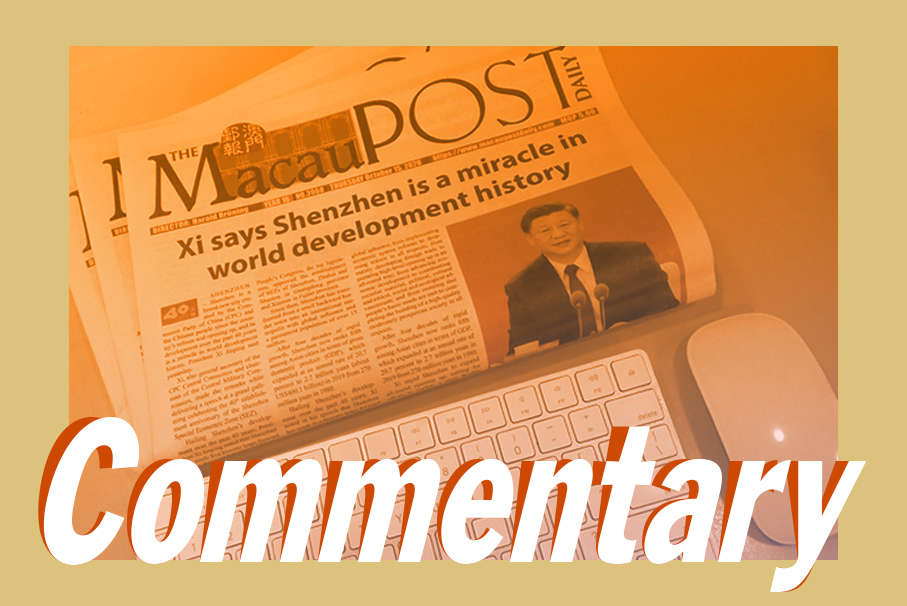The Macao Humanities Forum was recently held by the University of Macau’s (UM) Faculty of Arts and Humanities (FAH), with the key-note lecture held by the South China Agricultural University’s School of Foreign Studies Dean and Changjiang Distinguished Professor Huang Guowen, the public university said in a statement yesterday.
The statement did not say when exactly the forum was held.
The forum, according to the statement, is held each academic year and aims to “provide a platform for world-renowned scholars from different humanities fields to share their latest research results with the UM community and local teachers and students”.
Being the first lecture of the forum of this academic year, Prof. Huang delivered a lecture titled “Systemic Ecolinguistics and Harmonious Discourse Analysis”, which was held both online and offline.
Huang holds the prestigious title of Changjiang Distinguished Professor, which is granted by the Ministry of Education to the nation’s top scholars.
The forum comprised nearly 200 participants, including UM faculty members and students. It was also attended by FAH Dean Xu Jie and FAH Assistant Dean Joaquim Kuong Io Kei, the statement noted, while FAH Associate Dean Li Defeng delivered the opening speech and highlighted Prof. Huang’s achievements and influence in ecolinguistics and the linguistics field.
The lecture started with Prof. Huang giving an overview of ecolinguistics, which he described as the “study of the relationships and interactions between language and ecology”. One of its goals is to “explore the role of language in the process of harmonious coexistence between humans and nature”, the statement added.
Prof. Huang then summarised Haugen and Halliday’s ideas and introduced systematic ecolinguistics and its problem-orientated features with concrete examples, the statement noted.
According to the HISOUR website, US linguist Einar Haugen, who died in 1994, was a pioneer of ecolinguistics who in 1972 introduced the aspect of interaction in sociolinguistics and psycholinguistics.
Another pioneer was Englishman Michael Halliday, who passed away in Australia in 2018. He introduced the subject of language and the environment to the discussion for the first time in 1990 during a lecture in Thessaloniki, Greece. His question was: “To what extent are linguistic structures and peculiarities of texts involved in the environmental problems? Can language help mitigate environmental problems, for example by raising awareness of various anthropocentric terms?”
More details can be found on https://www.hisour.com/ecolinguistics-49423/
The statement underlined that Prof. Huang then discussed his proposal of “harmonious discourse analysis” from the Chinese context’s perspective and explored the “roots of Chinese philosophy, the ‘people-orientated’ assumption, and the principles of conscience, proximity and regulation for the analysis of ecological discourse and behaviour”.
The participants also had a discussion with Prof Huang on the theme after the event.
According to Wikipedia, ecolinguistics, or ecological linguistics, emerged in the 1990s as a new paradigm of linguistic research, widening sociolinguistics to take into account not only the social context in which language is embedded, but also the wider ecological context, including other species and the physical environment.
The International Ecolinguistics Association is an international online network of ecolinguists.

This undated handout photo shows participants and Prof. Huang Guowen (on screen) during the recently held first lecture of the Macao Humanities Forum in the 2022/2023 academic year.







